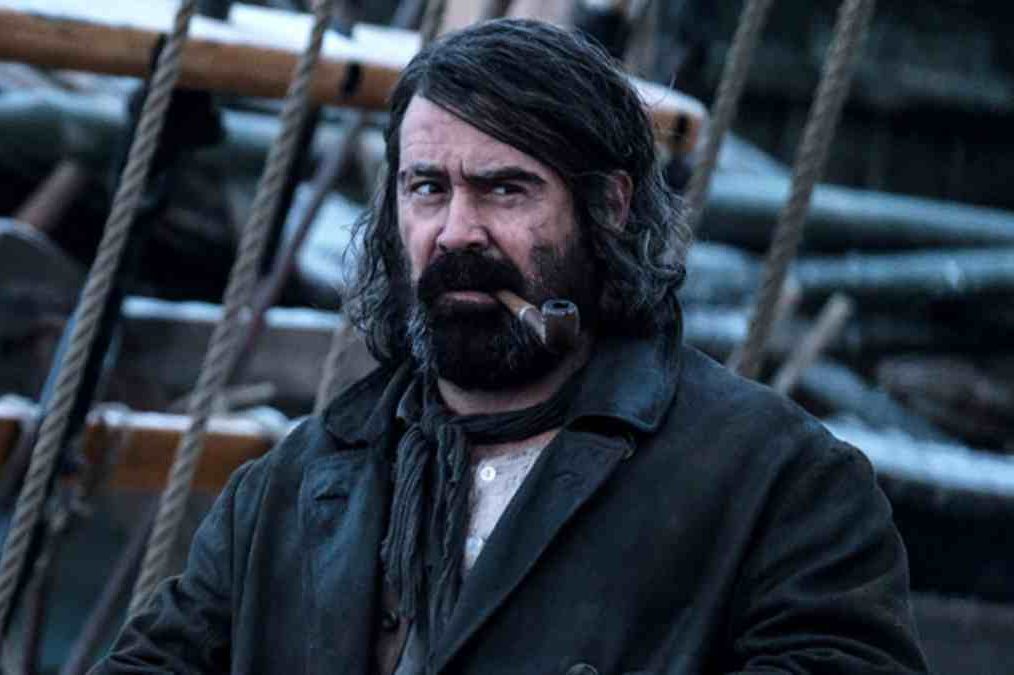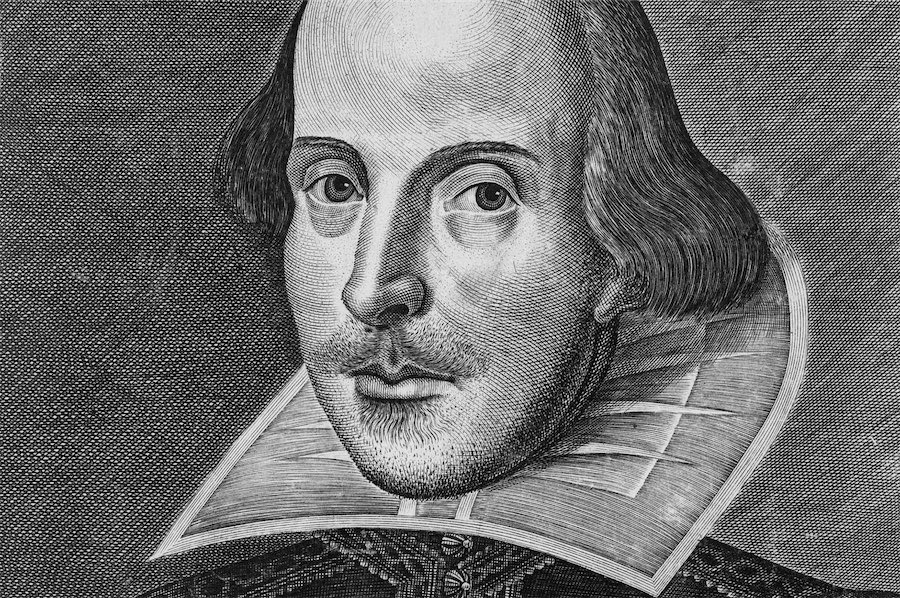
Hello sailors, streaming columnist NICK OVERALL slings his hook for a little nautical adventure.
IT’S rare an actor transforms themselves to the point of unrecognisable in a role.

Heath Ledger in “The Dark Knight” or Charlize Theron in “Monster” come to mind as some of the most striking examples of the last two decades.
But late into the first episode of “The North Water”, a chilling new nautical tale on streaming platform Binge, a thought occurred to me about the show’s lead I had spent the past 40 minutes captivated by: “Is that Colin Farrell?”
Indeed, it was.
He plays the bearded, barbaric and barking mad Henry Drax – a wandering criminal unpredictable to the point of unnerving, almost impossible to see as the charming Irish actor.
The show doesn’t hesitate in introducing viewers to this strange figure as they’re dunked into the sea soaked back alleys of 1850s England.
Drax is in search of a shilling, unrestrained in his attempts to get it, and he sees opportunity in “Volunteer” – a whaling ship doomed to sink in a plan by its owners to reap an insurance claim.
But although Farrell’s enigmatic felon is the first thing the audience lays eyes on, he’s certainly not the main character. Quite the opposite.
That’s Patrick Sumner – an upright, civilised 19th century chap who also boards “Volunteer” as its surgeon.
In other words, a walking paradox to Drax.
Sumner, played by Jack O’Connell, is fascinated by the atavistic existence of his shipmate and the crossing of their paths sets up the plot to unfold over the five episode miniseries.
Squeamish viewers need beware of “The North Water”, the show is unrestrained in its brutality.
Like Cormac McCarthy’s “Blood Meridian” plucked from the Wild West and dropped into the Arctic, “The North Water” unflinchingly builds its world through hyper-masculine violence amid awe-inspiring landscapes.
While it gets off to a slow start, the atmosphere is worth basking in – the show wants viewers to feel its icy-cold world.
That’s certainly made easier by the actors themselves having had to endure freezing cold conditions in order to film in some of the beautiful and frightening scenery they did.
Indeed, the effect is vivid enough that watching these frozen sailors step into the warm glow of a candle-lit inn almost makes one feel a little less chilly while watching.
“The North Water” is another show in a line of sea-swept tales of a doomed ship crew.
Take 2018’s “The Terror” on Amazon Prime Video or “Master and Commander” (Disney Plus) with Australia’s own Russell Crowe.
The success of productions such as these show there’s fair room for the ocean-going tale in modern entertainment.
But, of course, “The North Water” borrows heavily from the ultimate tale of men doomed at sea.
That’s “Moby-Dick” – Herman Melville’s 700-page goliath of a book that’ll tell you everything you ever needed to know about whale guts.
This dense masterpiece’s lingering influence on culture is more ingrained than many might realise.
Ever had a coffee from Starbucks? If so you’ve tasted what might be the most prolific Moby-Dick reference there is. The chain is named after first mate Starbuck aboard the whaling ship in the novel.
Countless TV shows have also produced love letters to the book, from “Futurama” to “The X-Files” to “Phineas and Ferb”.
But if it is as lasting as this, where’s the epic TV adaptation of the novel itself?
While the 1959 film, which saw Gregory Peck play the doomed Captain Ahab, is considered a classic, it’s Ron Howard who made the closest thing to a modern “Moby-Dick” with 2015’s “In The Heart of the Sea” (Netflix).
Here, Howard took inspiration from the true story of “The Essex” – a ship in 1820 that was sunk by a sperm whale and which formed the inspiration for Herman Melville’s “Moby-Dick” published 30 years later.
Despite both Chris Hemsworth and Tom Holland being plonked front and centre, the film couldn’t realise its ambitions.
It pulled in a lame sum at the box office and although the visual effects were praised, the consensus seemed to be that the film couldn’t capture the magnitude to be found in its source material.
If Ron Howard can’t bring “Moby-Dick” to the modern screen, who can?
A question yet to be answered, but Melville’s novel for the time being is best enjoyed via its more subtly entrenched influence in entertainment such as “The North Water”.
Perhaps a modern “Moby-Dick” adaptation is one whale that can’t quite be harpooned.
Who can be trusted?
In a world of spin and confusion, there’s never been a more important time to support independent journalism in Canberra.
If you trust our work online and want to enforce the power of independent voices, I invite you to make a small contribution.
Every dollar of support is invested back into our journalism to help keep citynews.com.au strong and free.
Thank you,
Ian Meikle, editor







![For graphic designer Tracy Hall, street art is like any artwork, her canvas has been swapped out for fences and plywood, her medium changing from watercolours to spray paint.
A Canberra resident for 13 years, Tracy has been a street and mural artist for the past five.
Her first exploration into grand-scale painting was at the Point Hut toilets in Banks five years ago. “They had just finished doing up the playground area for all the little kids and the words [of graffiti] that were coming up weren’t family friendly,” she says.
“So I ended up drawing this design and I got approval for the artwork.”
Many of Tracy’s time-consuming artworks are free, with thousands of her own dollars put into paint.
@traceofcolourdesigns
To read all about Tracy's fabulous street art, visit our website at citynews.com.au or tap the link in our bio! 🎨🖌
#canberranews #citynews #localstories #canberrastories #Citynews #localnews #canberra #incrediblewomen #journalism #canberracitynews #storiesthatmatter #canberralocals #artist #streetart #streetartist #StreetArtMagic](https://scontent.cdninstagram.com/v/t39.30808-6/490887207_1225841146218103_6160376948971514278_n.jpg?stp=dst-jpg_e35_tt6&_nc_cat=106&ccb=1-7&_nc_sid=18de74&_nc_ohc=J2D9ahHZyz8Q7kNvwFAjSCp&_nc_oc=AdmtvhfrKrQxDi5g2ejT7m6MJ5vD68iCTAbRyyUE79cYUZAOBpn5T65fnUlv8sX8m5U&_nc_zt=23&_nc_ht=scontent.cdninstagram.com&edm=ANo9K5cEAAAA&_nc_gid=nD6I1mI-SUQIVRGlnZqFDg&oh=00_AfGcq6xvPNT2R75OT4NZwTCanDtNFfyTOkdS9qeSEueRQg&oe=6810D214)
Leave a Reply